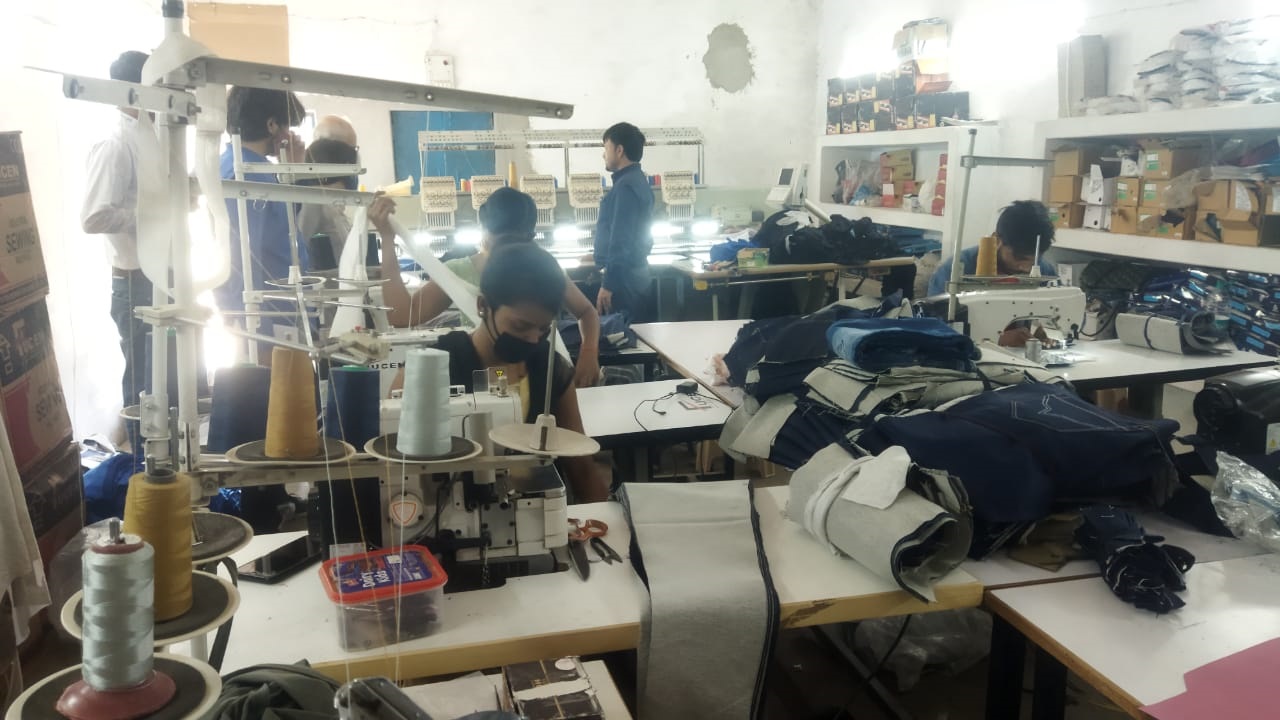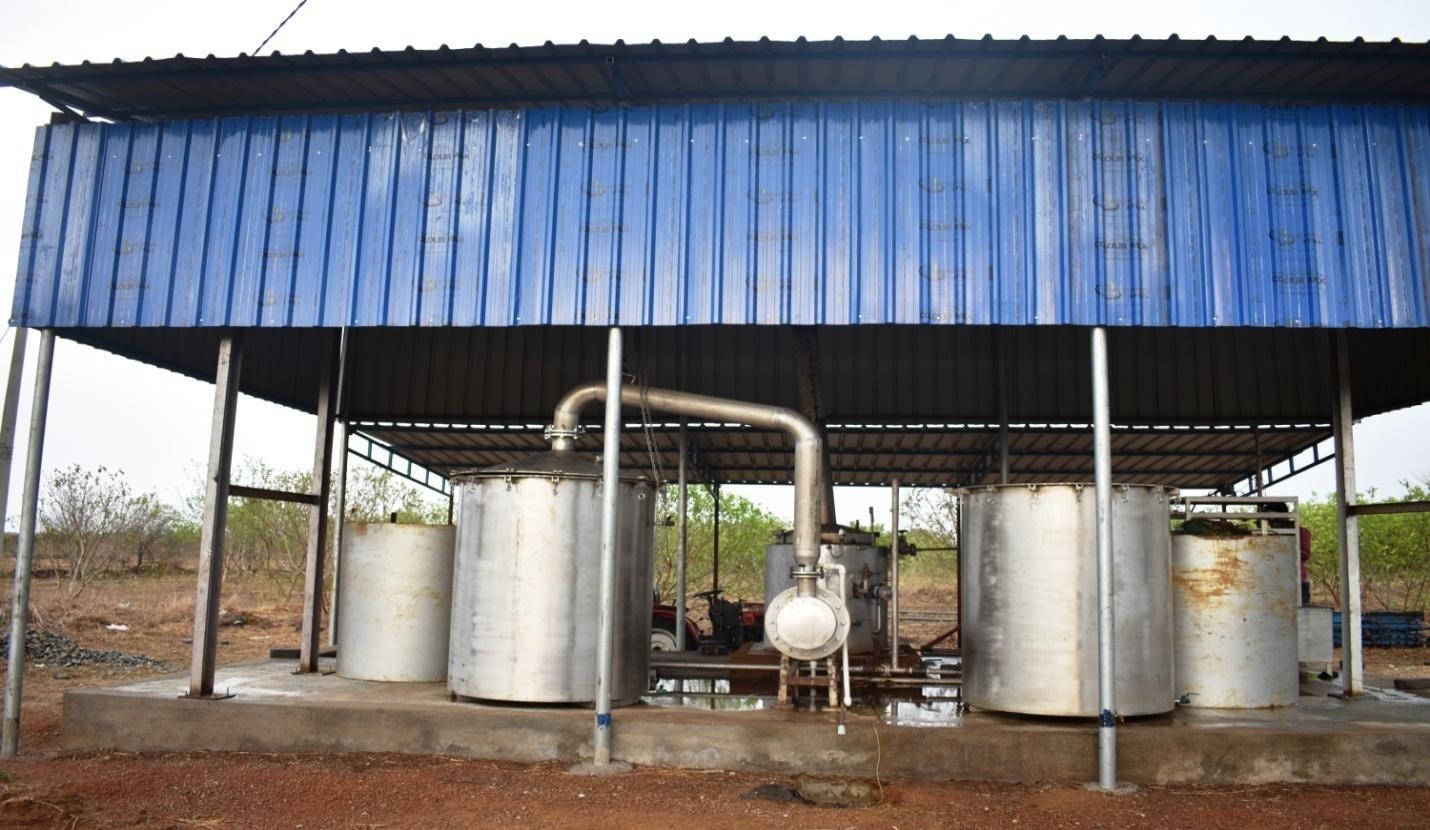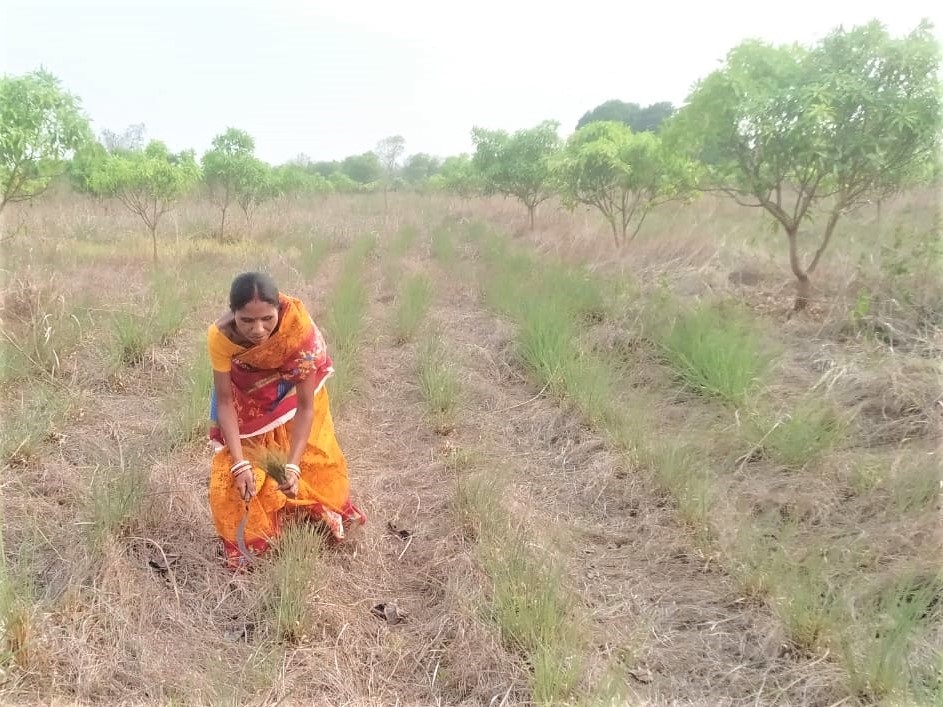|
With fewer employment opportunities in villages, people have been migrating to cities searching for semi-white collar jobs in logistics, hospitality, services, and construction industries. COVID-19, however, has reversed that trend to an extent, due to job losses during the pandemic-led lockdown and added economic uncertainties. Poor working conditions, labour exploitation, and high expenses in cities also compel many to consider moving back to villages. But are there enough jobs in rural areas to absorb them? We highlight two rural enterprises, a garment manufacturing unit and a farmers’ collective, that are creating jobs and making local economies resilient.
Jauhar Ansari’s garment manufacturing unit A distillation unit at Jaganathhi under the Udala Palmarosa Cluster
With over 25 years of work experience in the textile manufacturing
sector in cities such as Delhi and Chandigarh, Jauhar Ansari decided to
return to his village in Mirzapur district of Uttar Pradesh in 2016. He
wanted to capitalise on the knowledge and experience he had gained over
the years as a skilled tailor and a manager, in his own business. Within
a year, he established his
He says, “Through training and employment, we can enhance the local economy while also doing social good.” In his enterprise, he trains over 15 young girls and boys on the different components of the manufacturing process, from spinning the yarn to pressing the finished fabric, so that they too can become stakeholders in his business or open their own enterprise one day. Connected with local schools, co-curricular clubs, and networks, he manufactures fabric of various materials, keeping the quality in check. Moving forward, he intends to employ more locals while scaling up his business through financial and marketing support.
Bhagwati Hembram is a 35-year-old member of the Maa Durgadevi Farmer Producer Organisation (FPO), which is a part of the Udala Palmarosa and Lemongrass Cluster in Mayurbhanj district of Odisha. The cluster, set up in January 2020, consists of 1,236 farmers who cultivate the medicinal herb of lemongrass and palmarosa alongside mangoes and guavas on 1,000 acres of land. A government grant of INR 412.45 lakh under the Scheme of Fund for Regeneration of Traditional Industries (SFURTI) of the Ministry of Micro, Small, and Medium Enterprises (MSME) was sanctioned to the cluster. The Indian Micro Enterprises Development Foundation (IMEDF), a special purpose vehicle (SPV) of the Development Alternatives Group, is a nodal agency in the scheme. Also, participation by a local non-government organisation has added 10 per cent to the total investment, strengthening the public–private partnership (PPP) model at the grassroots. This becomes a sustainable model with the participation of the government, implementing agency, technical agency, nodal agency, civil society organisations, and farmers of the SPV. The scheme provides for infrastructure, machinery, raw material bank, and grants for the skill and capacity building of the farmers. With value addition, 1 kg of lemongrass produces 0.8 litre of essential oil that has a market value of INR 1,500 per litre. With an annual production of 1,000 litres of oil and an investment of INR 150 lakh, the cluster reaps an annual turnover of INR 1 crore. This results in a sustainable collective enterprise with social, environmental, and economic benefits. Bhagwati, who earns INR 10,000 monthly which is three times her earlier income, says, “I enjoy taking charge of the lemongrass and palmarosa oil distillation as I find the process fascinating, but I am happiest when I interact with fellow farmers who are eager to learn more about the aromatic crops.”
Ground stories of entrepreneurs like Jauhar and farmer collectives such
as the Udala Lemongrass and Palmarosa Cluster prove that when local
entrepreneurial energies collaborate with the skilling of the human
labour force, jobs can be created in the local economy. This way, the
local economy becomes resilient against the irregularities of the labour
market while providing a decent livelihood to people.
Aparajita A. Mathew
Rashika Sharma |


 own textile manufacturing business by
investing his savings. He has 65 automatic tailoring machines, which are
operated by 24 full-time local women and youth. Additionally, he employs
seasonal workers who help achieve the targets of orders received from
various vendors. Jauhar's business specialises in manufacturing daily
wear, sportswear, and sleepwear for all age groups.
own textile manufacturing business by
investing his savings. He has 65 automatic tailoring machines, which are
operated by 24 full-time local women and youth. Additionally, he employs
seasonal workers who help achieve the targets of orders received from
various vendors. Jauhar's business specialises in manufacturing daily
wear, sportswear, and sleepwear for all age groups.